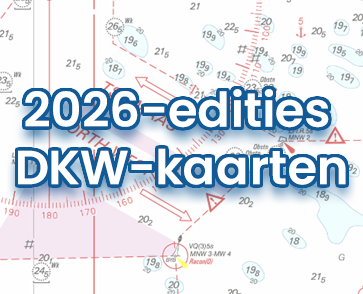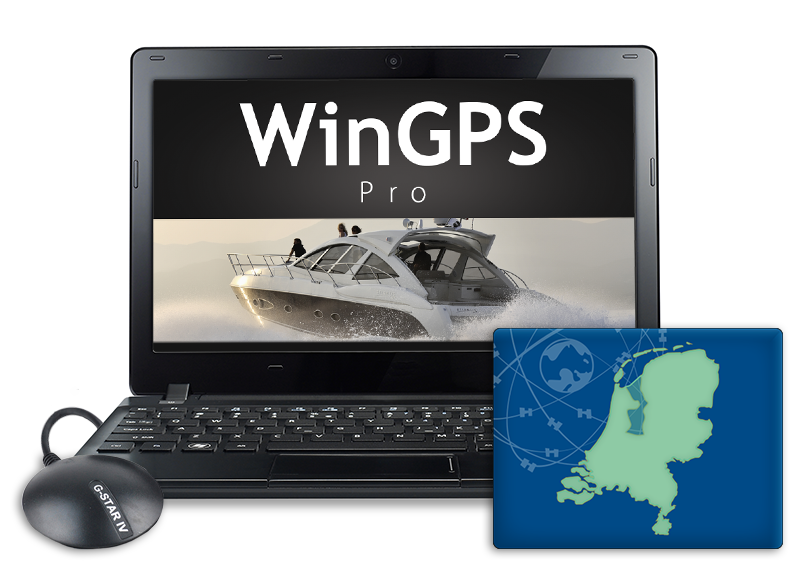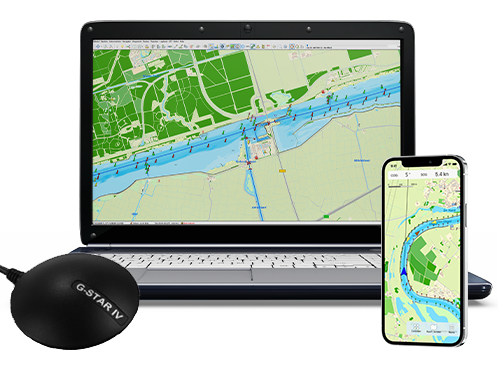Miniplex-3Wi N2K
WIFI NMEA 2000 Multiplexer with Seatalk conversie and AIS support
Connect your (Raymarine) instruments wirelessly to your navigation system
| | |
| Delivery: | 1 week |
| | |
| Price: | € 509,00 |
| | |
Do you want to transfer data between your on-board instruments and your laptop, PC, tablet or smartphone? Then it is ideal to use a multiplexer.
Connect all your onboard instruments to this small box, such as an autopilot, AIS, anemometer, depth sounder, log, compass and repeater. Using WiFi, you can connect the multiplexer wirelessly to your tablet, smartphone, laptop or PC. There is also a USB cable with which you can connect the multiplexer to a PC or laptop. You only need to link the instruments in WinGPS and set them up as desired.
For example, you can control your autopilot with WinGPS and you have all data from your on-board instruments visible in WinGPS.
The Miniplex-3Wi N2K is a NMEA 0183/2000 multiplexer with both a Wifi and a USB connection. It has 4 NMEA-in ports (1 Seatalk) and 2 NMEA-out ports.
More information:
The MiniPlex-3 Series NMEA Multiplexers include a suite of advanced NMEA multiplexers that combine data from multiple navigation instruments.
By means of an advanced filtering and routing system, this data can be sent to other instruments, computers, tablets and smartphones.
Via a bi-directional SeaTalk1 interface it is possible to convert SeaTalk1 data to NMEA and vice versa. This allows a MiniPlex-3 to replace the Raymarine SeaTalk-NMEA converter (E85001).
MiniPlex-3 models with a NMEA 2000 interface (-N2K suffix) can be connected directly to a NMEA 2000 network. A conversion takes place between NMEA 2000 PGNs, NMEA 0183 sentences and SeaTalk1 datagrams in all directions.
All data is available on one or more computer interfaces in NMEA 0183 format. NMEA 2000 PGNs and SeaTalk datagrams for which no NMEA 0183 equivalent exists can be converted to special NMEA 0183 sentences. This gives software developers the ability to process 'raw' NMEA 2000 and SeaTalk data.
Each port of the MiniPlex-3 is galvanically isolated from the internal electronics. This ensures that ground loops can never occur when using a MiniPlex-3 multiplexer. This ensures trouble-free connection to all types of NMEA 0183 ports.
All MiniPlex-3 multiplexers are functionally identical but differ in the type and number of computer interfaces.
The MiniPlex-3 has a large number of configuration options, solving many NMEA bottlenecks and interface problems. The multiplexer can be configured using the supplied MPX-Config3 program. The program also shows which NMEA sentences pass through the multiplexer.
NMEA Routing
NMEA data can be routed from any input to any output. A default route can be set as well as routes for individual NMEA sentences.
The data from the computer can be routed to any NMEA output, where it can be merged with other NMEA data or given priority over the other data. The latter can be used as an automatic switch between navigating with a computer and navigating with a GPS.
NMEA-routing
NMEA data can be routed from any input to any output. A default route can be set as well as routes for individual NMEA sentences.
The data from the computer can be routed to any NMEA output, where it can be merged with other NMEA data or given priority over the other data. The latter can be used as an automatic switch between navigating with a computer and navigating with a GPS.
NMEA filter
A flexible NMEA filter makes it possible to pass or block NMEA sentences per input. This significantly reduces the chance of overflow and therefore data loss. For example, many GPS receivers transmit an RMC, GSV, GSA, GLL and a GGA sentence every second, accounting for 85% of the available bandwidth on a NMEA channel. Blocking unwanted or unnecessary sentences leaves more bandwidth for other instruments. The filter also provides the ability to reduce the frequency of NMEA sentences.
NMEA 2000
The MiniPlex-3-N2K models are equipped with a NMEA 2000 interface that can be connected to a NMEA 2000 backbone. The MiniPlex-3 converts NMEA 2000 messages into NMEA 0183 sentences and vice versa. This enables seamless integration of NMEA 2000 and NMEA 0183 equipment. Navigation software that normally only supports NMEA 0183 can now receive and control data from NMEA 2000 equipment.
Variable data rate
The communication speed of all inputs and outputs is adjustable from 4800 to 57600 Baud. This makes it possible to connect devices that use non-standard data rates (4800 Bd) such as integrated weather sensors or AIS receivers and transponders.
SeaTalk® conversion
When Input 1 is set to SeaTalk mode, this input becomes a bi-directional SeaTalk port which can be connected to a Raymarine SeaTalk® network.
The SeaTalk data is then converted to NMEA 0183 by the multiplexer and combined with the data from the other inputs. When Priority is enabled, the SeaTalk data can be assigned either the highest or the lowest priority.
Priority
When Priority is enabled, identical NMEA sentences on different inputs are passed only from the highest priority input. The USB port has the highest priority, followed by inputs 1 to 4 in descending order. For example, if two GPS receivers are connected to inputs 1 and 2 and both send the same NMEA sentence types, only the sentences from the GPS on input 1 will be passed. An adjustable timeout ensures that when the GPS on input 1 stops, the identical sentences from the GPS on input 2 are passed through. Optionally, the GP sentences can be checked for a valid status field, which also causes a switchover when the primary GPS no longer receives a satellite signal.
Channel numbers
This option generates a $MXSTN sentence or a TAG block per NMEA 0183 sentence received to indicate which input this sentence was received on.
Talker ID substitution
Talker ID Substitution changes the talker ID of incoming sentences. The talker ID can be set per input. This option can be used when software or instruments expect a particular talker ID or when the data of identical instruments needs to be distinguished from each other.
NMEA Conversions
The MiniPlex-3 offers several conversions for NMEA sentences:
• Magnetic to True heading conversion and vice versa
• GPS speed to Log speed and vice versa
• Reverse True heading
• Old (VWR) to new (MWV) wind sentences and vice versa
• Relative/Apparent to Theoretical/True wind
• RMC to GGA
Technical specifications
• Supply voltage: 8-35VDC, reverse polarity protected
• Current draw: 70mA (120mA max. at full load on the talker ports)
• Computer interface: WiFi (802.11b/g, +10dBm), supports UDP and TCP, port 10110 USB, galvanically isolated
• Supported protocols: TCP/IP, port 10110 for NMEA 0183 data, ARP, ICMP and DHCP for network management
• Inputs: 4 x NMEA 0183/RS-422, galvanically isolated (Input 1 can be set to SeaTalk mode)
• Input resistance: > 1.4 kOhm
• Input current: 0.5mA @ 2V, 3.0mA @ 5V, 7.1mA @ 10V
• Outputs: 2 x NMEA 0183/RS-422, galvanically isolated
• Maximum output current: 20mA @ > 2V
• Filter list size: 50 phrase types
• Priority list size: 50 phrase types
• Speed NMEA In 1-3: 4800 - 57600 baud
• Speed NMEA In 4/Out 1: 4800 - 57600 baud
• Speed NMEA Out 2: 4800 - 115200 baud
• Dimensions: 138 x 62 x 30mm
• NMEA 2000: LEN: 1
• Speed: 250kbps
• Connector: M12 male Micro-C
Productspecifications
| Art.nr.: | 1421 |
| Producer: | Shipmodul |











